The Power of Community Storytelling and Co-Creation
Storytelling is undergoing a transformation. The traditional top down model where stories are told by a single voice to a passive audience is giving way to more dynamic, participatory forms of ethical storytelling. Community storytelling, paired with the concept of co-creation, is at the forefront of this transformation, offering profound opportunities for engagement, understanding through common values and experiences, deep listening, and impact. This blog explores the importance of community storytelling and its relationship with co-creation, illustrating how they can enrich collective narratives, deepen connections between and within communities and contribute to a more ethical storytelling.
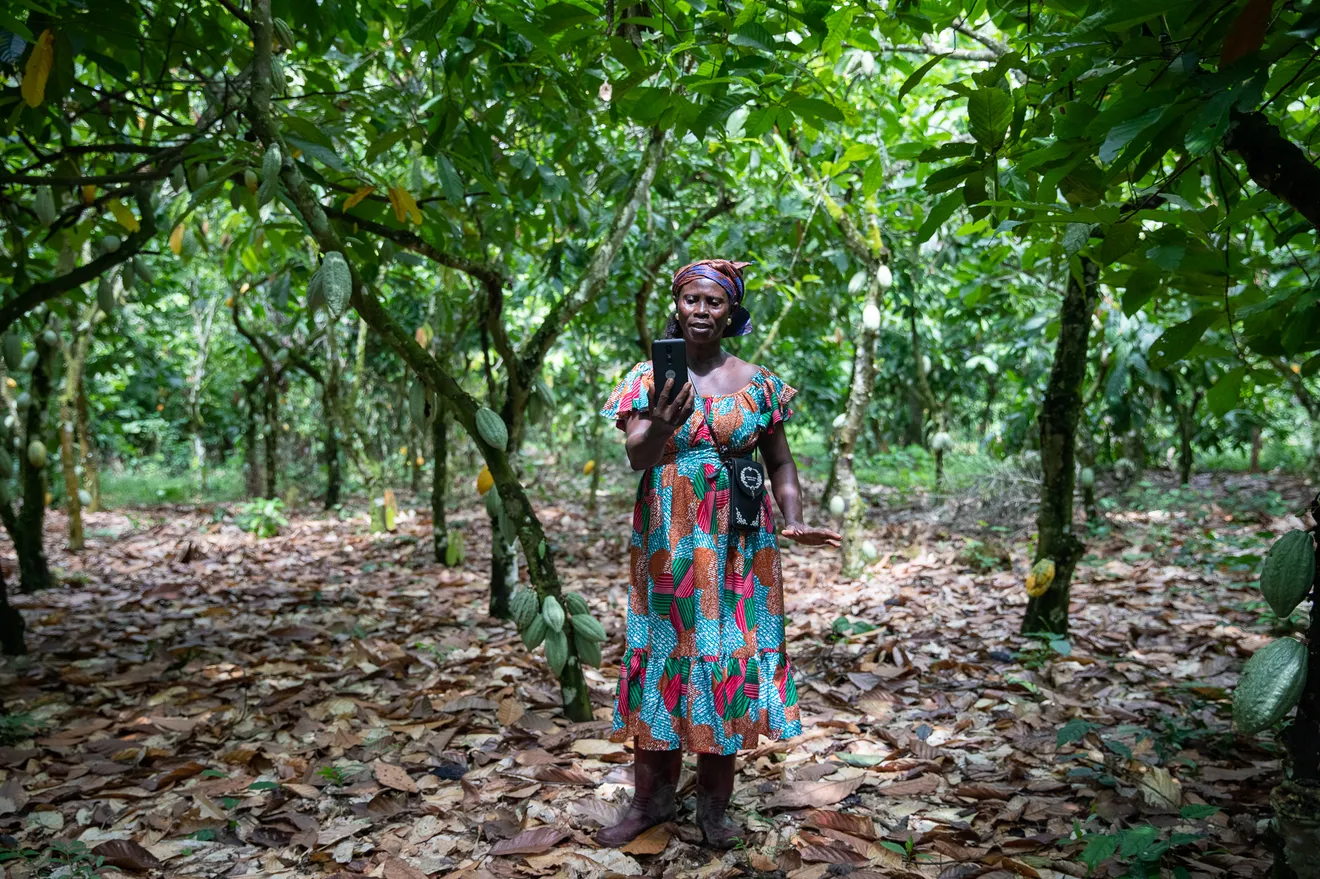
Mina Antwiwaa records a selfie video on her farm in Abakoase, Fanteakwa, Eastern Region of Ghana, on November 10, 2021. She makes these videos as a part of the impact dairies of her journey as a cocoa farmer. “The change in climate has delayed our harvest. The rains didn’t come as expected, but we are hopeful for a great harvest” says Mina.
Photo: Nipah Dennis / Fairtrade Germany / Fairpicture
What is Community Storytelling?
Community storytelling, also named participatory storytelling, contributory storytelling or inclusive storytelling depending on context, focuses on narratives that are rooted in the experiences and perspectives of a community. This approach recognises the diverse voices within a community and elevates them to share control of the narrative process. By doing so, it ensures that the visual and narrative stories reflect the authentic and multifaceted realities of community members.
The significance of this approach lies in its inclusivity and representativeness. Stories are not just told about community members; they are told by and co-created with them. This method breaks down barriers of misunderstanding and misrepresentation, as it values each individual’s input and acknowledges their lived experiences as part of the collective narrative. It is important to remember that community members are at the center of relationships with different groups, systems and structures including being beneficiaries of the services or programs NGO’s and ethical businesses provide.
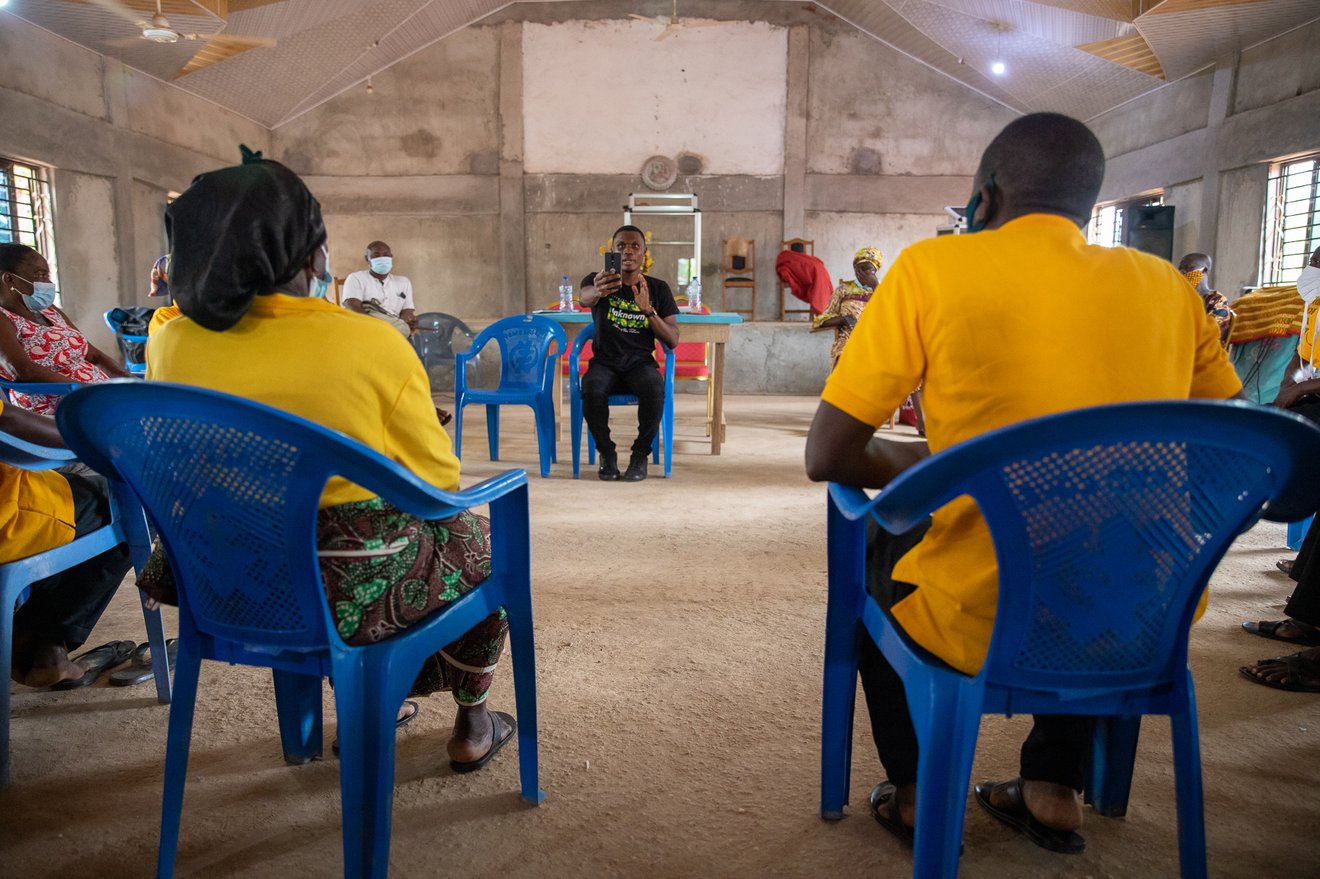
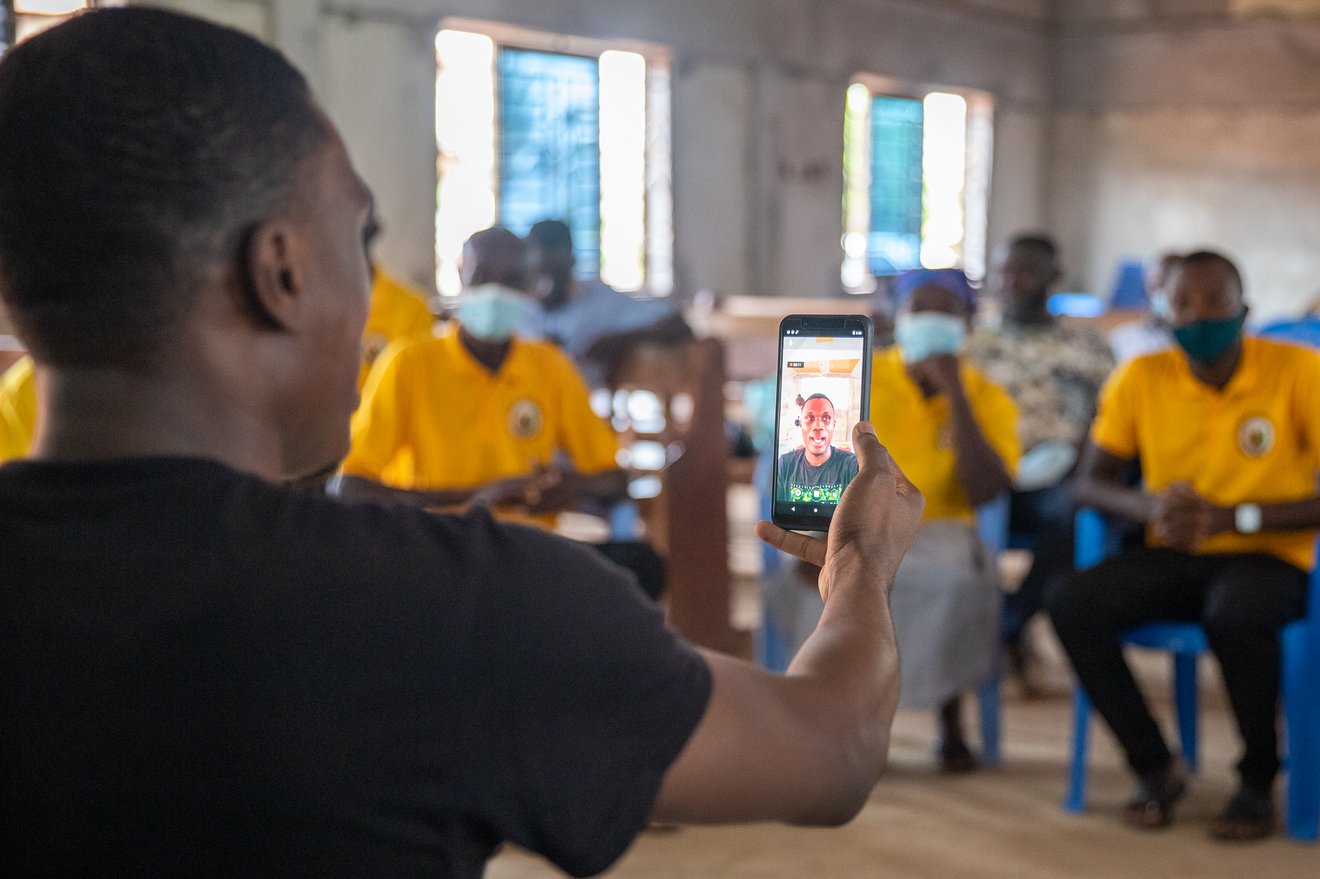
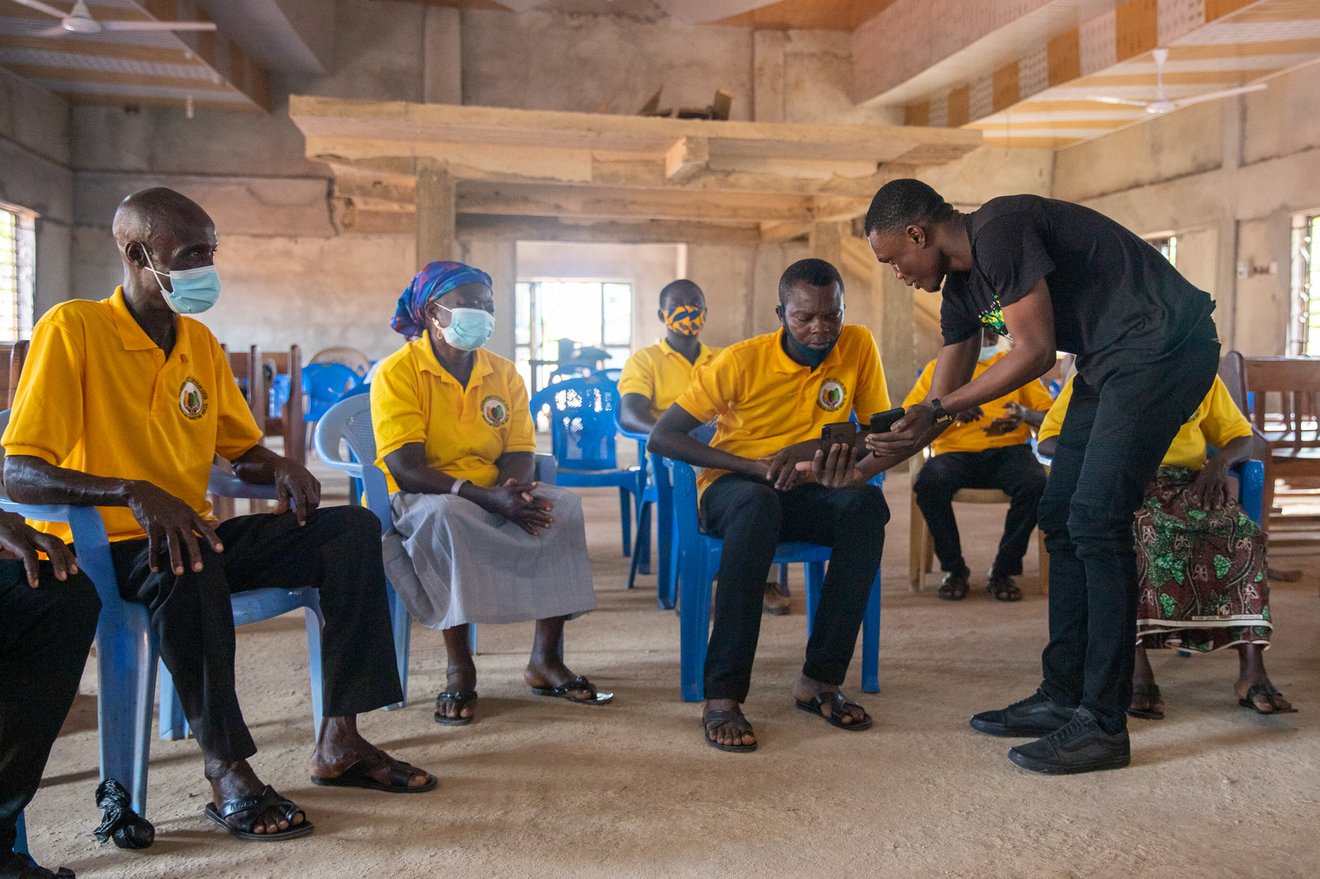
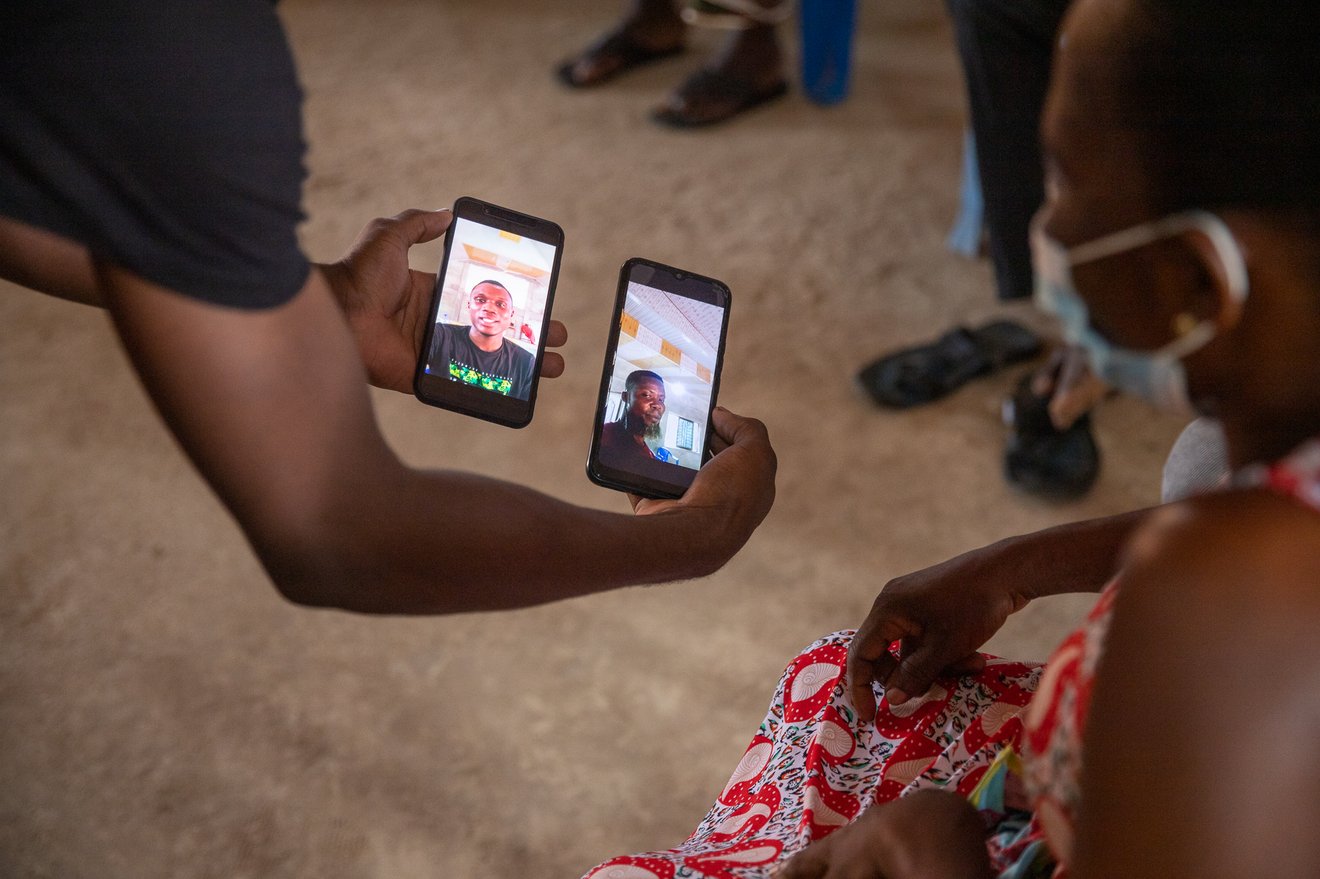
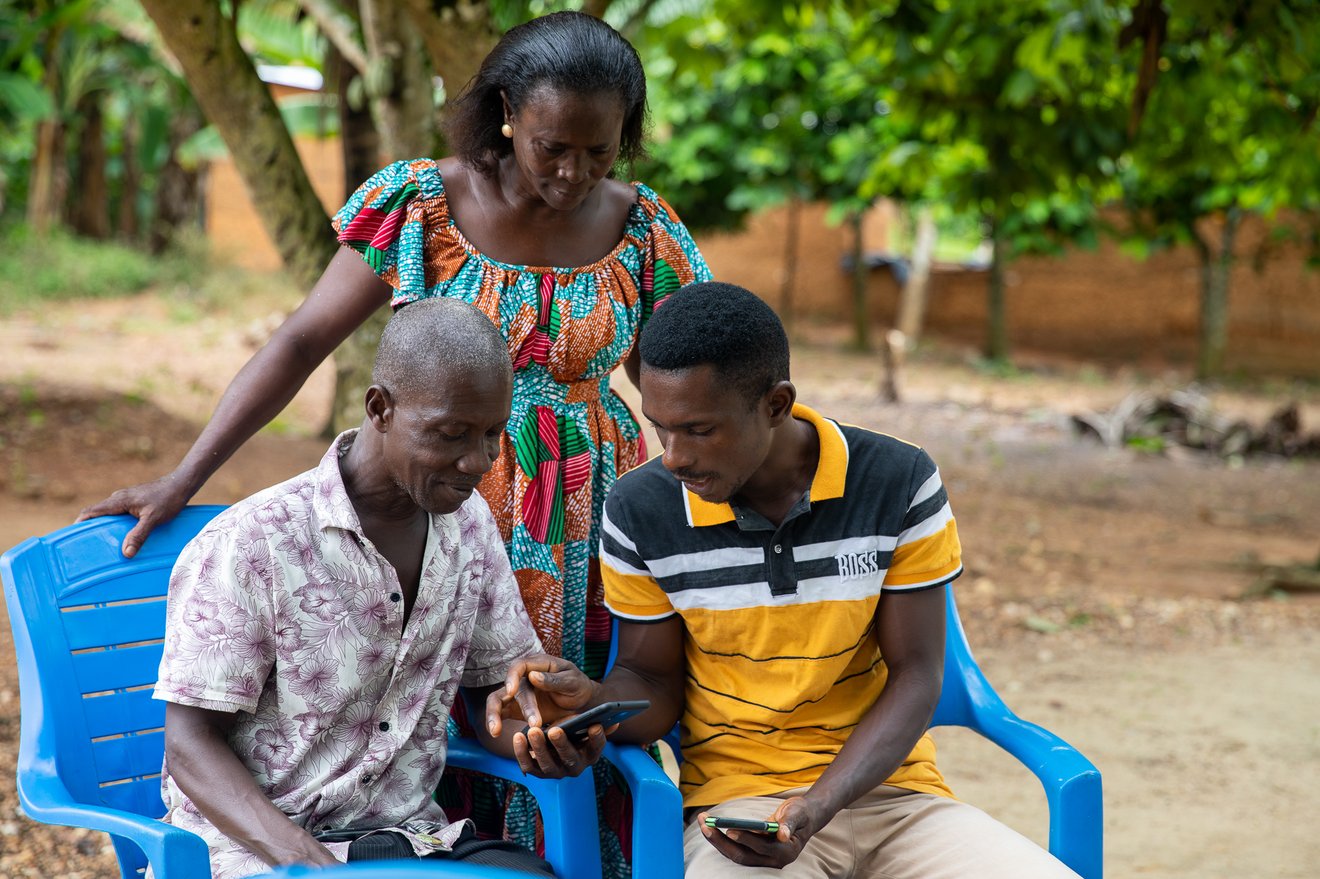
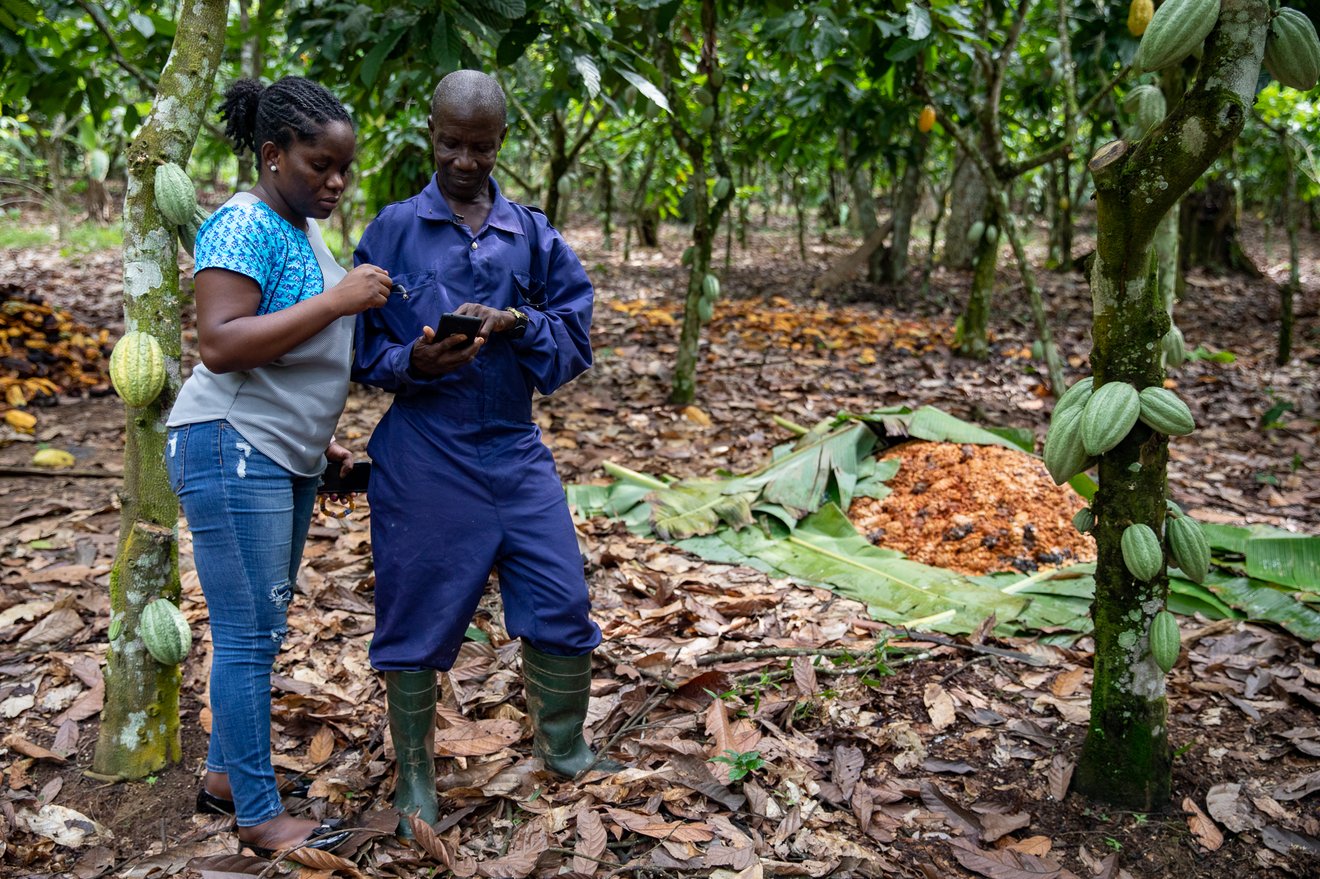
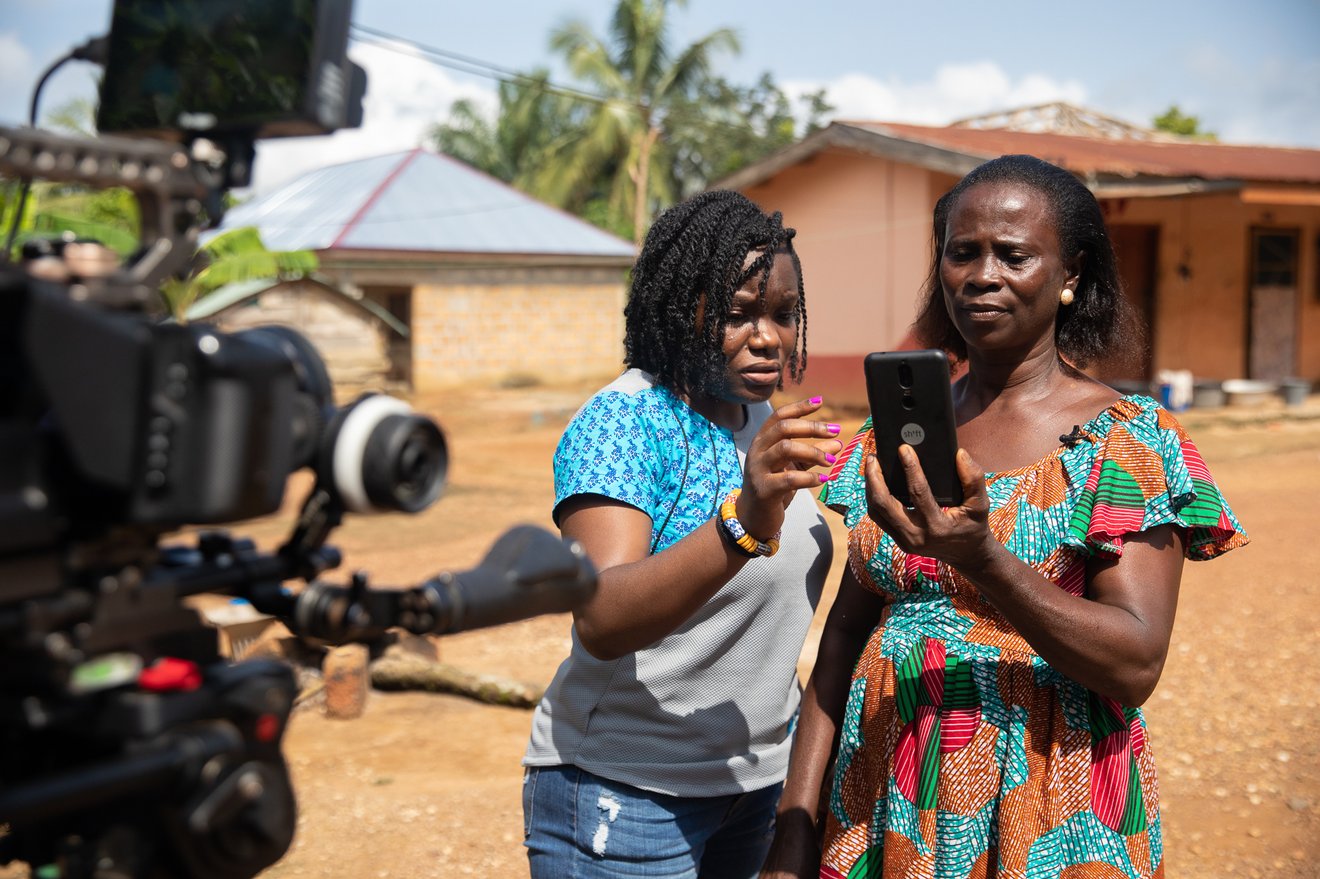
Matthew Lartey, Youtuber from Accra, interacts with cocoa farmers during a selfie video training at Abekoase, Ghana, on April 12, 2021.. Fairtrade and two partners initiated a project on living income for cocoa farmers two years ago in Ghana. 'Impact Diaries' is the name of an awareness-raising campaign that reports on this project and puts the people who are affected by it at the centre and lets them have their say.
Photo: Nipah Dennis / Fairtrade Germany / Fairpicture

FairTalk #14: Reclaiming Ethical Fundraising in a Time of Nonprofit Cuts is happening on 10th June 2025, at 5pm CET.
This is part of our ongoing series exploring the role of ethics in visual storytelling and communication across the nonprofit and development sector.
Join us live to explore how NGOs can respond to today’s funding pressures without compromising their values.
Linking Storytelling with Co-Creation
Co-creation in storytelling is a collaborative process where community members work alongside storytellers, such as photographers and filmmakers, to craft narratives that incorporate diverse perspectives. For Fairpicture and its clients, this means producing stories that reflect the insights and perspectives of community members, creators, and communication professionals alike. This partnership ensures that the final narrative is enriched by multiple viewpoints, truly representing the lives and experiences of those depicted.
True co-creation is not merely about amplifying the voices of community members but about creating stories together.
N'Deane Helajzen
Fairpicture Marketing & Sales Manager
True co-creation is not merely about amplifying the voices of community members but about creating stories together. Unlike community-created content, which can lack collaboration from all partners and may lead to adoption challenges, co-creative efforts aim to level the playing field. This approach fosters genuine collaboration, allowing all stakeholders to contribute meaningfully by working together.
This method does more than produce authentic and engaging stories; it also empowers the protagonists, granting them agency in how their stories are told and shared. Co-creation cultivates a sense of ownership and pride among community members, as they see their voices and experiences shaping the narrative. This inclusive process ensures that the stories are not only compelling but also truly representative of the communities involved.
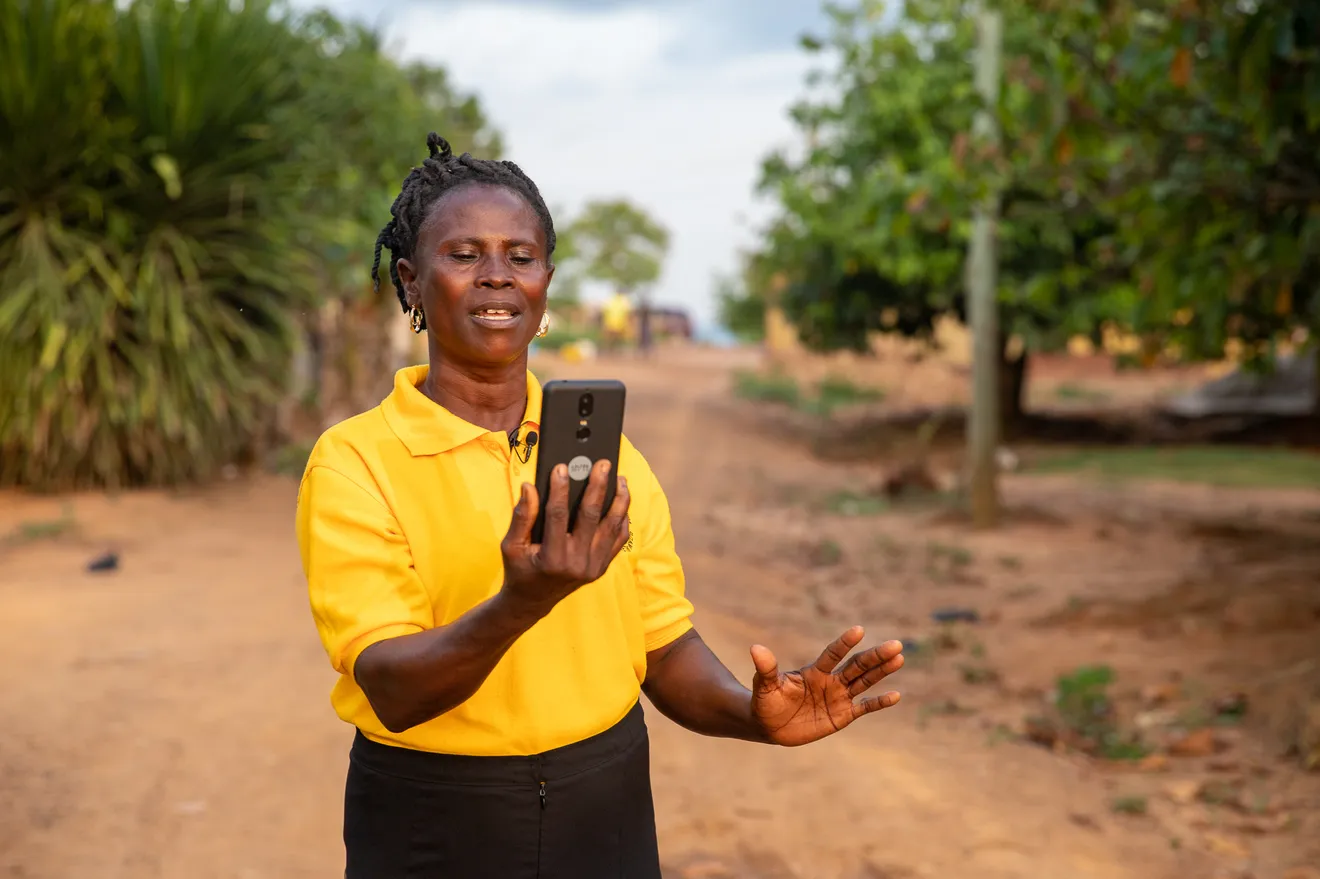
Mina Antwiwaa, Fairtrade Impact Diaries Ambassador, records a selfie video of her experience as a cocoa farmer. Abekoase, Ghana. April 13, 2021
Photo: Nipah Dennis / Fairtrade Germany / Fairpicture
Why Community Storytelling?
Stories hold immense importance. They teach important lessons about a society’s culture, the land and our interaction with each other and the environment. Stories foster connections, cultivate empathy, and remind us of our shared values and common humanity. By sharing stories through still and moving image we're doing more than recounting experiences; we're crafting narratives that spotlight the issues, challenges, and injustices people face. At the same time, we showcase the impact of our clients’ work, driving support and raising funds for future initiatives. Through these stories, we illustrate the prudent use of clients' funds and the significant, positive social changes those investments have brought about.
However, traditional or conventional storytelling can easily become an act of mere extraction. An outsider photographer or videographer might spend a day or two in the community, unable to establish transparent relationships and trust. We “take’ or “capture” photos and videos without providing anything in return, including explaining the purpose of the shoot or where those still and moving images will be used. Consent often becomes a mere checkbox, lacking genuine understanding or agreement.
This scenario involves complex and uneven power dynamics, especially when those posing the questions also control resources or make funding decisions. By acknowledging these dynamics, we aim not only to collect stories respectfully but also to share richer, more nuanced, and authentic narratives.
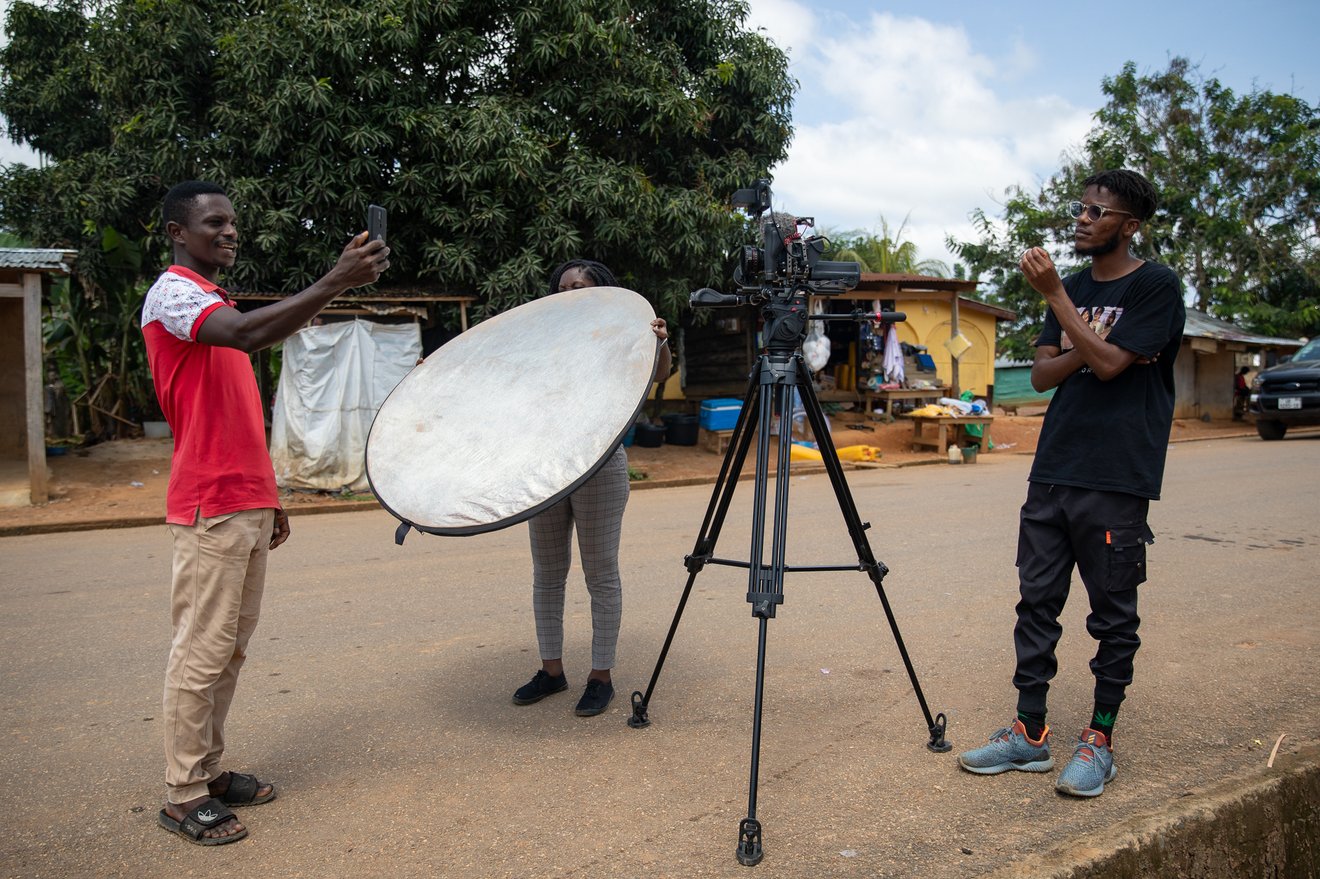
Behind the scenes: Bismark Domena, Fairtrade Impact Dairies ambassador and Caleb Odartey Aryee, Fairpicture cinematographer from Ghana while documenting the recording of a new selfie video.
Photo: Nipah Dennis / Fairtrade Germany / Fairpicture
Benefits of Community Storytelling and Co-Creation
- Enhanced Authenticity: Stories crafted through community input and collaborative efforts are more nuanced and authentic. They capture the complexities of real-world experiences, which single-perspective narratives might overlook. The approach respects the dignity and agency of the individuals and communities being portrayed, highlighting their strengths, aspirations, and contributions.
- Stronger Connections: When community members see their stories being told with depth and accuracy, it builds trust and strengthens connections both within the community and with external audiences.
- Empowerment and Agency: Co-creation empowers community members by involving them actively in the storytelling process. This participation amplifies voices and fosters a sense of agency and control over how their stories are portrayed and understood.
- Cultural Preservation: Community storytelling helps preserve cultural heritage by documenting the traditions, values, and histories of a community as told by its members. This can be especially vital for marginalised or underrepresented groups.
- Social Impact: Narratives born from co-creation can drive social change by highlighting issues from the perspectives of those directly affected. These stories can inform and inspire action by policymakers, activists, and the broader public.
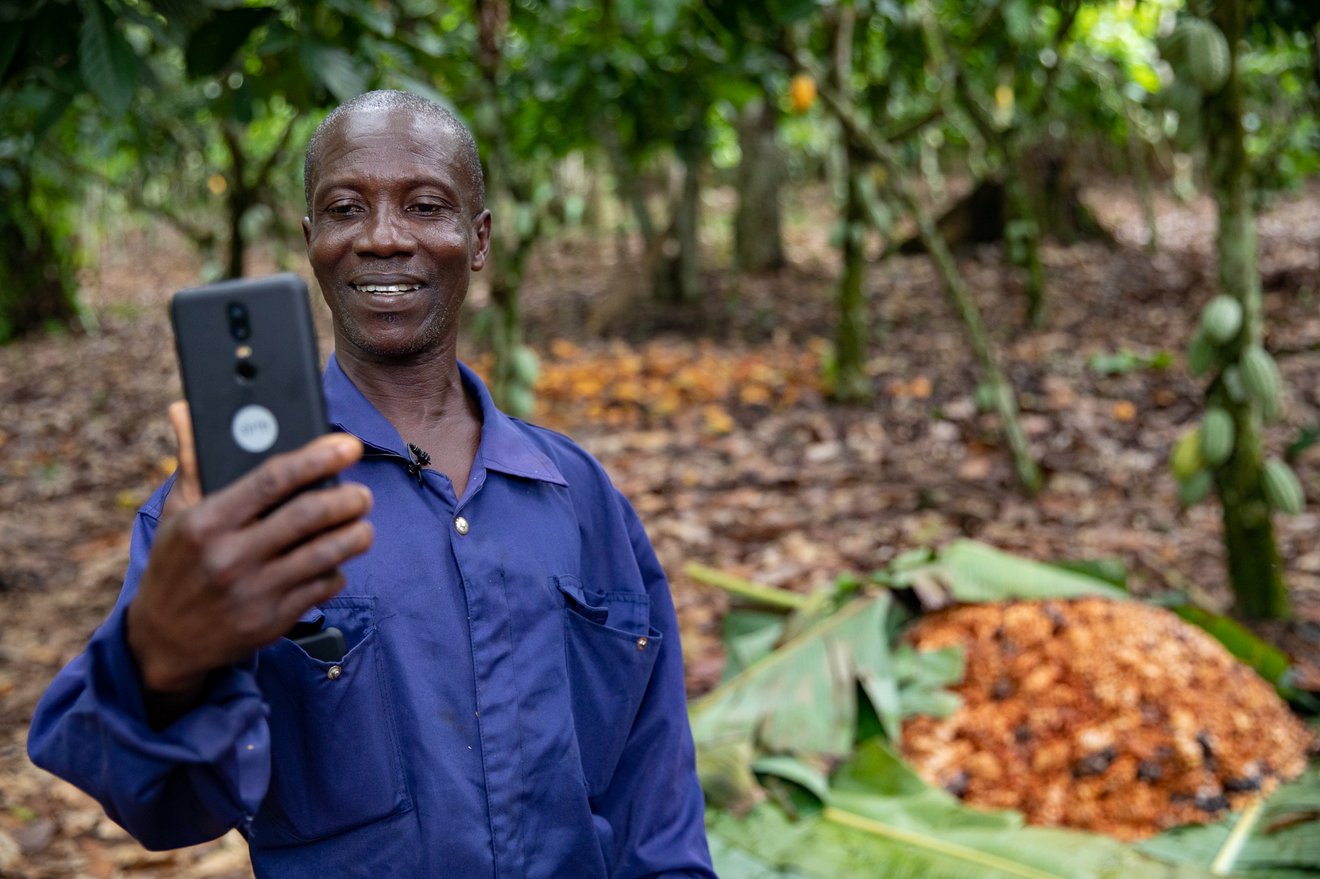
Photo: Nipah Dennis / Fairtrade Germany / Fairpicture
How do we implement these principles at Fairpicture?
Fairpicture has developed some key principles and a code of conduct which aims to put the people in the pictures at the center of their own narratives and the decisions we make around storytelling. While our actions are guided by a Theory of Change, believing in the transformative power of visual communication.
- Authenticity and Intentionality: Before taking an image, we encourage our visual creators to consider its purpose carefully. We ask: Why this image? Why this person? What story are we trying to tell with this photograph? We ensure that the image portrays people and circumstances honestly and accurately. Our stories must challenge stereotypes and avoid oversimplified narratives that can dehumanise individuals or groups.
- Local Expertise: We always work with local photographers and videographers from the community where we are facilitating the content gathering. Our network exists of dedicated professional visual creators who are interested in social issues and the communities they come from. These professionals share a language and cultural understanding with the protagonists, ensuring authenticity and respect in the storytelling process.
- Informed Consent: Consent is more than a signed form; it’s a comprehensive process that requires time and clear explanations. We share information regarding where an image or story might be used and provide a practical way for individuals to withdraw consent if they choose. Informed Consent must be actively given and never assumed. Individuals also have the option to change their names or remain anonymous and to withdraw their consent at any time. We facilitate this process through our FairConsent App because digital consent collection just makes sense in today’s world.
- The Fairpicture Platform as a tool to facilitate co-creation: Our productions take place on a digital platform with a dedicated production manager supporting you throughout your assignments. Offering, portfolio review, streamlined briefing, editing, invoicing and project communication all occurs transparently on the platform with all stakeholders playing an active role in the storytelling process.
- Protection of Vulnerable Individuals: Our visual creators are mindful of the way children and other vulnerable individuals are portrayed. We always obtain genuine informed consent from the child’s parents or caregivers.
- Secure Storage: We store images securely and enforce a five-year limit on their use.
- Transparency: We maintain openness about how we use images and quotes, sharing information freely. Conversations around consent occur in the language the participant is comfortable with. Our FairConsent App supports this process and is available in 32 languages.
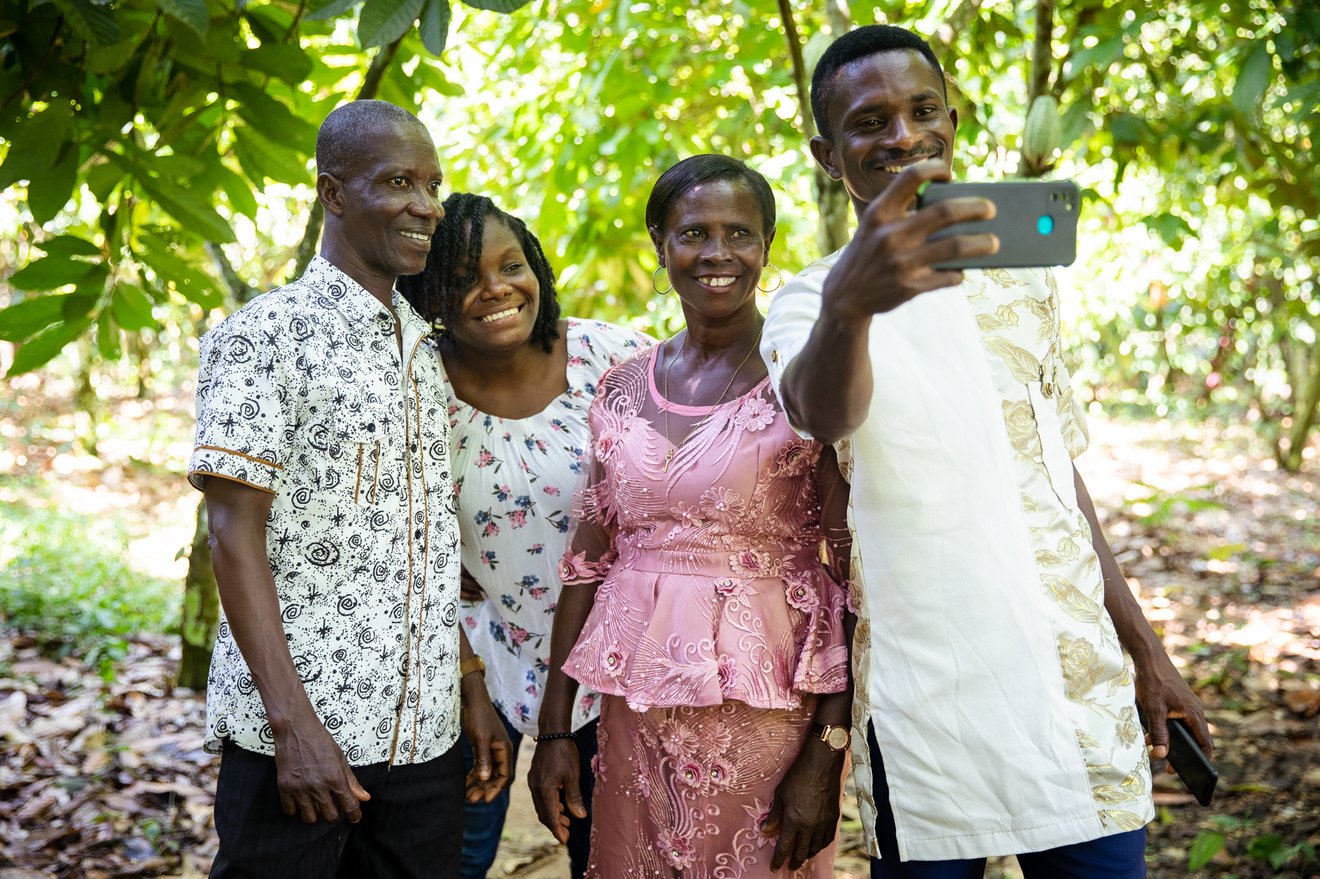
Photo: Nipah Dennis / Fairtrade Germany / Fairpicture
When it comes to storytelling, it’s all too easy to speak on behalf of others. But if we are putting people at the center of our stories, then we need to remember our role is to represent people as individuals – to ask not just what we want to know, but what they want to share. A fair picture is fair to all those involved in its production, distribution, and consumption.
Our goal is that pictures contribute to equal relationships between visual creators, portrayed people, clients, and the general public. By integrating community storytelling and co-creation into our work, we aim to create more authentic, respectful, and impactful narratives. This approach not only amplifies diverse voices but also fosters a sense of collective ownership and empowerment.
As we embrace these methods, we can look forward to a more inclusive and representative world of storytelling, where every voice has a chance to be heard and valued. We’re listening, learning, and improving all the time – and we hope you’ll continue to join us on this journey.
Latest blog posts
Our community's inspiring voices
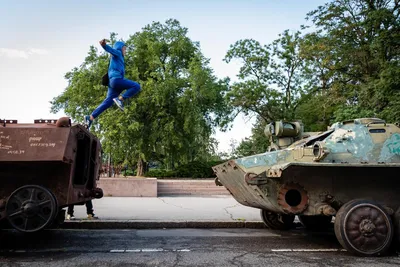
May 2025 - Noah Arnold
Civil Society Under Pressure: The Role of Transparent Communication and Ethical Storytelling
Discover how transparent communication and ethical storytelling can help NGOs and non-profits build trust, foster inclusion, and challenge traditional narratives.
Learn more about Civil Society Under Pressure: The Role of Transparent Communication and Ethical Storytelling
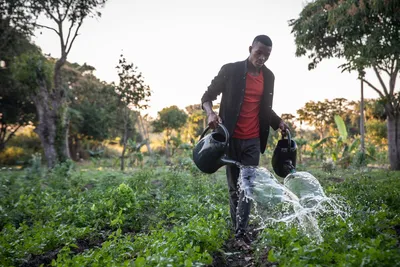
April 2025 - Jörg Arnold
Visual Communication on a Tight Budget
Why do so many communication, marketing and fundraising managers struggle to find budget for photography and video production, and why do we need to solve this?
Learn more about Visual Communication on a Tight Budget
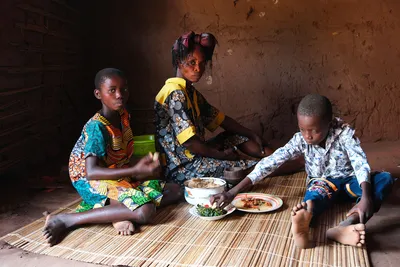
April 2025 - Laura Abad Guerrero
AI, Copyright, and the Ethics of Consent
What OpenAI and Google’s copyright requests reveal about power, ownership, and ethical storytelling in the age of AI.
Learn more about AI, Copyright, and the Ethics of Consent
 by
N'Deane Helajzen, May 2024
by
N'Deane Helajzen, May 2024